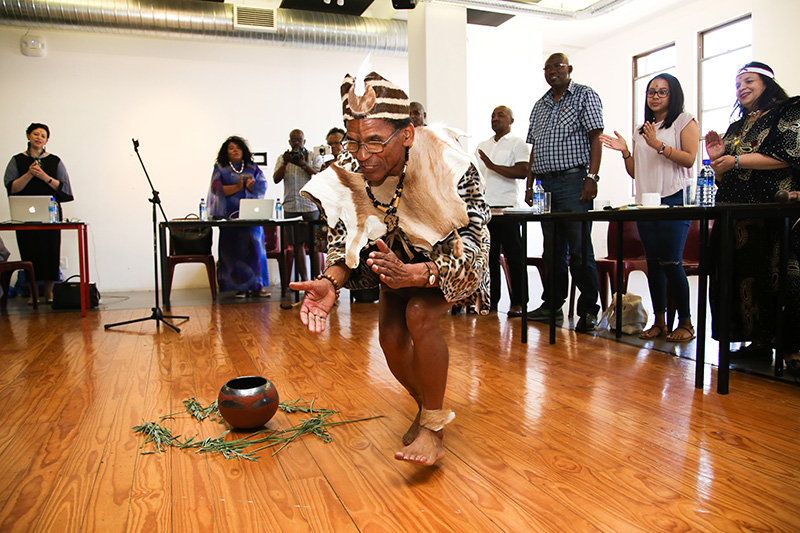
One of the most critical aspects of decolonising knowledge is freeing those knowledges that have remained captured in indigenous communities – that have been suppressed and made invisible in the Western canons of academic disciplines. These knowledges have been further marginalised through erased and endangered languages, located outside mainstream culture and academia.
This project aims to establish a Global Research Network for Indigenous Knowledge Restoration with global indigenous scholars tackling the challenge of cultural understanding of indigenous knowledge, languages and cultural practices and addressing their marginalisation through the development of a co-designed digital archive. It aims to provide a strong platform from which comparative research in indigenous knowledge restoration – which has thus far been limited to isolated pockets of research – can take place.
Such a collaboration is a first of its kind, and will address new research problems in Africa, Europe, America and the Pacific; it will bring to the surface knowledge that has been rendered invisible and marginalised in the form of shared indigenous concepts that can be used for developing new ethical research methods and practices.
The outcome will be a draft concept database for further development and ownership by both scholars and aboriginal communities from the participating regions. The ultimate aim is developing a co-authored, peer-reviewed international database that scholars can use in their research and teaching.
The preservation of endangered languages carries with it the task of cultural restoration: indigenous understandings and meanings of landscape, climate, resources and nature are buried in the languages that are dying out fast. Their loss has resulted in erasure and extractive development as seen in catastrophes such as the Amazon forests burning and indigenous communities falling victim to violence, xenophobia, and religious intolerance.
This project would contribute to:
- transforming the higher education curriculum for the 21st century by bringing previously marginalised conceptual knowledges for new research methods to the surface, rendering them visible;
- strengthening the legitimacy and authority of the university in a changing world through new decolonial knowledge-producing partnerships; and
- examining and enabling global and local mobilities of people, ideas, programmes and knowledges in higher education – compiling and sharing a comparative indigenous conceptual database for use in new decolonial research methods and teaching.
The Global Research Network for Indigenous Knowledge Restoration will thus foster, at a deep level, the understanding of cultures through a decolonisation scholarly language framework across countries that is both practical and actively engaged.
Selected outcomes
- Three-day workshop at the University of Cape Town
- Online interactive database and cultural archive development
